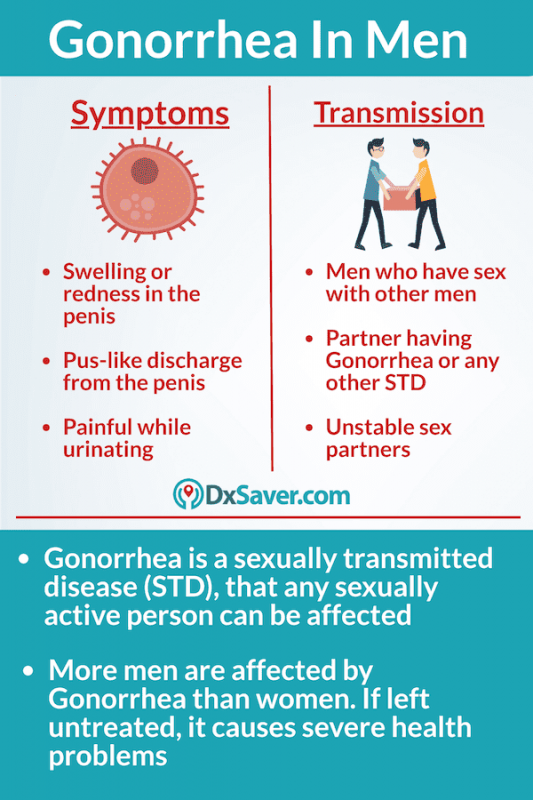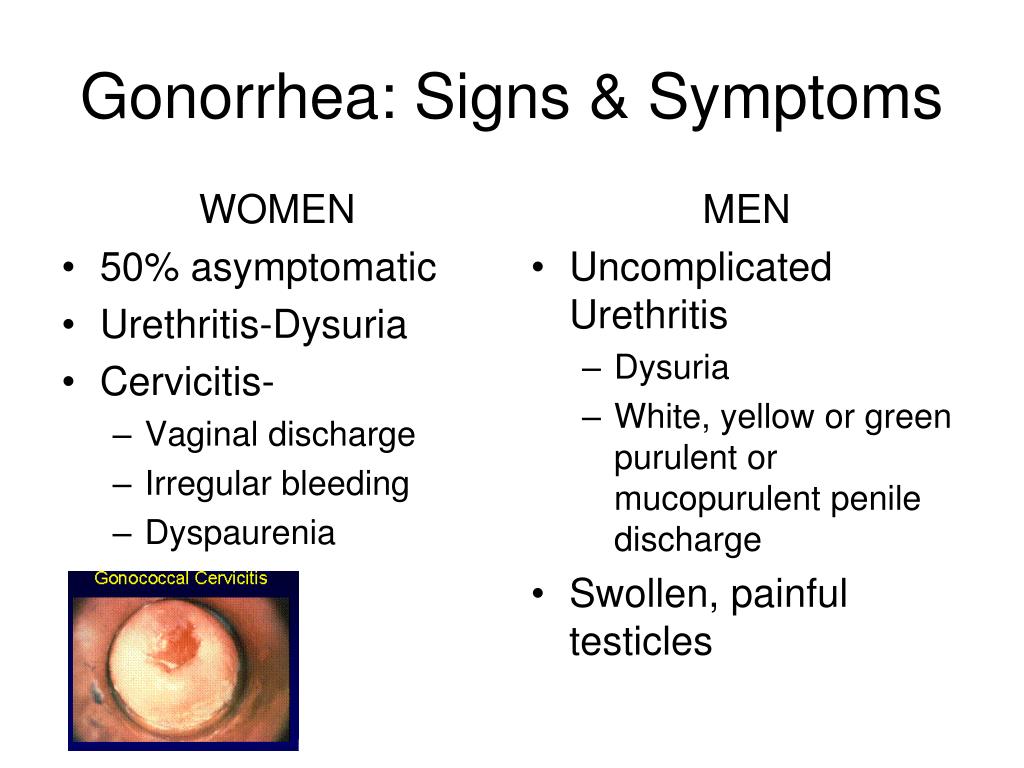
Your doctor will ask about your symptoms and sexual history. Therefore CDC recommends yearly screening for all sexually active women younger than 25 years and above who have multiple sex partners or a sex partner with a sexually transmitted infection. Some anal gonorrhea symptoms include mucus in stool or may indicate gonorrhea on the butt. People who have gonorrhea should also be tested for other STDs. Anyone sexually active should discuss their risk factors with their doctor.

Individuals should be tested for gonorrhea even if they are symptomless and their sex partner has been diagnosed with gonorrhea.

Furthermore, anyone with an oral, anal, or vaginal sex partner recently diagnosed with an STD should consult a doctor for testing. If you are experiencing symptoms such as vaginal or penile discharge or gonorrhoea rectal discharge, burning during urination, sores, or rash, it is best to avoid intercourse and get tested. Unprotected anal intercourse in bisexual, gay and other men who have sex with menĪny sexually active person has a chance of contracting gonorrhea.Being birthed by a person who has gonorrhea.Sexually active people usually under 25 years of age.Unprotected sex with someone who is from an area where gonorrhea is prevalent.Having sex with a new partner without using protection.Having unprotected sex with multiple partners.Sexual contact with a person having the infection.It may be possible to spread gonorrhoea on fingers when you touch an infected part of the body and then touch other parts of your or someone else’s body. It can be passed on by sharing unwashed sex toys or reusing the same condoms. Gonorrhoea is spread during oral, vaginal or anal sex. Talk to a Doctor How is anal gonorrhea transmitted? Pain and swelling in one testicle or both testicles.Some common symptoms of gonorrhea in men include: Bleeding or spotting in between periods.Vaginal itching or abnormal vaginal discharge.Other symptoms of gonorrhea in women can include: Oral gonorrhea may result in a sore throat, but mainly throat infections cause no symptoms at all. You may also experience symptoms that are non-specific to the infection hence, rectal gonorrhea symptoms are commonly overlooked, considering them to be caused by other conditions. Gonorrhea anal discharge is a symptom that you may experience but ignore. Gonorrhea on the anus may produce no symptoms. It is possible to spread the infection to your anus from another region.Īn example is when you wipe after going to the bathroom, you can infect your anus if you have genital gonorrhea. Infection of the anus can also develop amongst men who have sex with other men. Rectal gonorrhea occurs if you have anal sex with a person who has a gonococcal infection. In comparison, gonorrhea in men can affect the epididymis and prostate. Regions affected specifically in women include the cervix, uterus, fallopian tubes, and ovaries. The throat, urethra and rectum can affect both men and women. Being asymptomatic leads to the transmission of infection as the infection remains undiagnosed. Symptoms vary in males and females, and many individuals do not experience any symptoms. Symptoms of gonorrhea depend on which part of the body is affected. You can’t get gonorrhea by touching objects like toilet seats as the bacteria don’t survive for long outside the body. Women who have gonorrhea at the time of delivery can pass it to their baby during vaginal delivery. This includes coming in contact with the vagina, penis, mouth, or anus of someone with gonorrhea. You may also get the infection just from touching an infected area of another person. Oral intercourse (both giving and receiving).The bacterium causing gonorrhea thrives in moist environments making the mucous membranes in the urethra and parts of the reproductive tract a perfect place to reside and cause infection.Īlthough spread through sex, a man doesn’t necessarily have to ejaculate to pass it on to their partner. This STD is caused by the bacteria called Neisseria gonorrhoeae.
:max_bytes(150000):strip_icc()/how-is-gonorrhea-treated-3133260_final-a3ccf0128f48448b81d453243208e322.jpg)
Meaning that you could have the infection and spread it unknowingly. Gonorrhea can cause discomfort or may be asymptomatic. It’s easy to ignore the signs you may have contracted an infection. Many people don’t expect to get STDs such as anal gonorrhea. STDs can affect multiple regions of your body, including your vagina, penis, mouth and your anus as well.


 0 kommentar(er)
0 kommentar(er)
